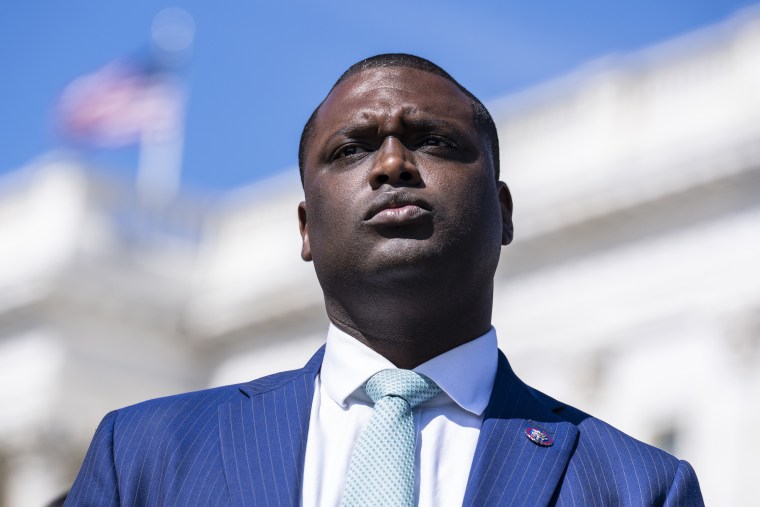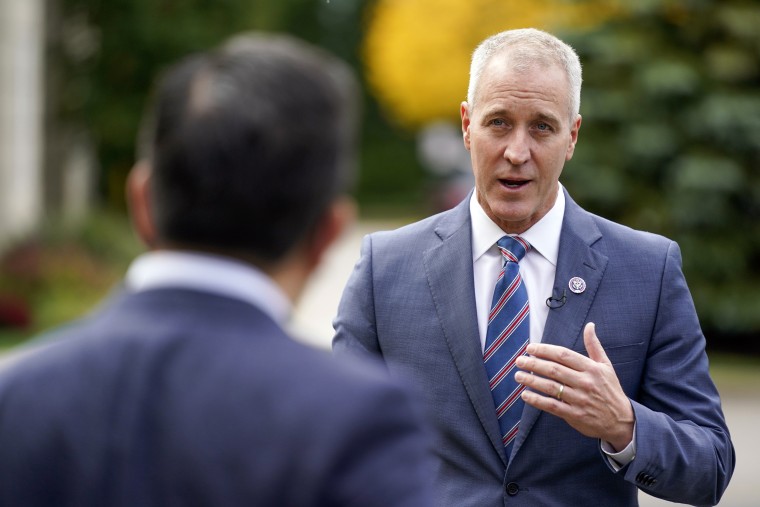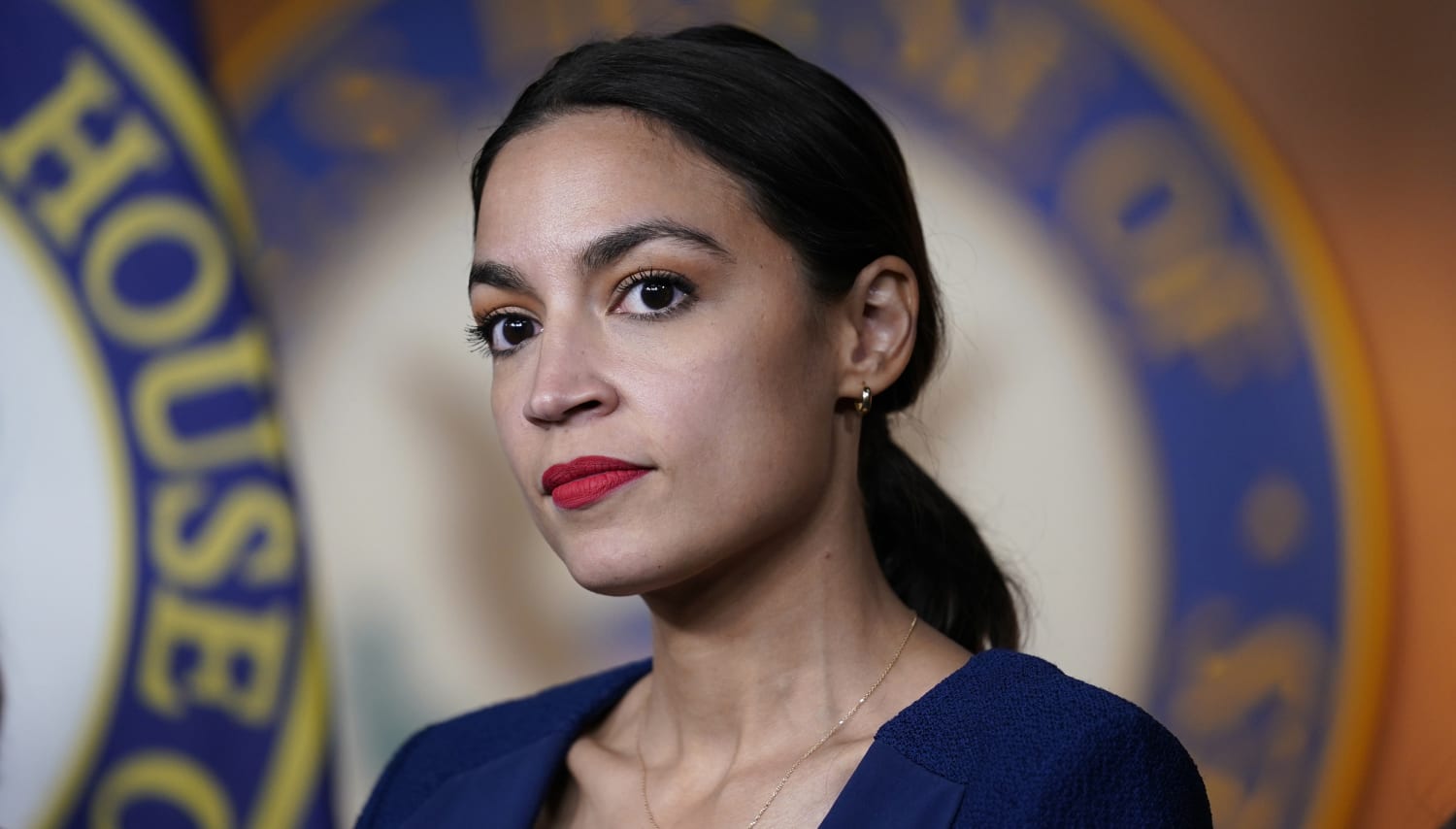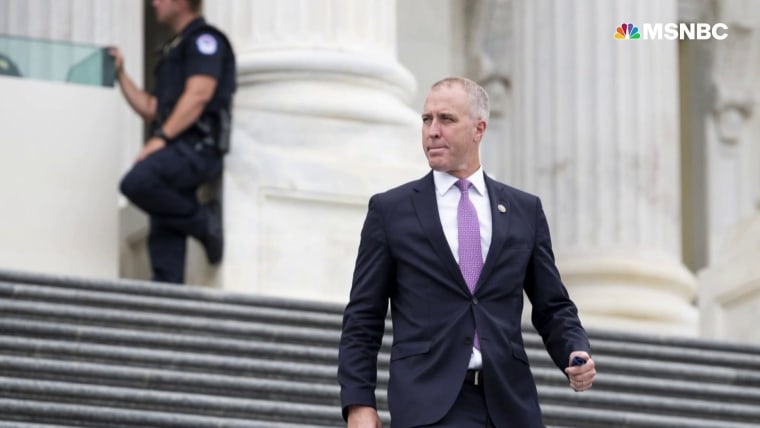It will go down as one of the bitter ironies of the 2022 midterm campaign: One of the few states that actually faced a “red wave” of Republican victories was deep-blue New York.
Democrats could have prevailed had their state party — which was busy deflecting progressive criticism of their conduct — marshaled better infrastructure and financial support for swing-district candidates.
To sour matters further, Democratic losses in the Empire State appear to be pivotal in the narrow majority in the House of Representatives that Republicans are likely to have starting next year. The icing on this rotten cake is that New York Democrats have no one to blame but themselves.
On a night of many disappointments, the party’s most egregious own goal was the one scored for Republicans by no one less than the Democratic Congressional Campaign Committee Chairman himself, Rep. Sean Patrick Maloney. Maloney, whose DCCC role is to elect as many Democrats to the House as possible, not only presided over the loss of four previously Democratic New York districts, but failed to win his own race after putting his ego above the warnings of party officials and activists.
Maloney isn’t the only one to blame for Democrats’ Big Apple bludgeoning, however. The Democratic legislators who control the statehouse fumbled the ball when they were given the task of drawing up new congressional districts to reflect the results of the 2020 census. Their new congressional maps failed to satisfy the courts that they didn’t violate the state constitution’s bar on partisan gerrymandering, leading to the appointment of a nonpartisan election expert as a special master to draw new maps that cut deeply into Democrats’ previously safe districts.
But even facing those tough maps, Democrats could have prevailed had their state party — which was busy deflecting progressive criticism of their conduct — marshaled better infrastructure and financial support for swing-district candidates. The maps were a problem; the party’s malpractice was fatal.
Facing challenging new maps, Maloney and his moderate allies panicked that many of the popular progressives who had already announced their candidacies simply could not win. That pessimism is part of a larger progressive versus moderate mindset the New York Democratic Party struggles with, best emphasized by the constant internal criticism of one of its most popular lawmakers: Rep. Alexandria Ocasio-Cortez.
But Ocasio-Cortez is not the sole target of machine Democrats’ ire. During the hotly contested race for mayor of Buffalo, democratic socialist India Walton won her primary, only for moderate party leaders to back her defeated opponent. New York State Democratic Committee Chair Jay Jacobs drew heavy criticism for a ham-fisted analogy in which he compared supporting Walton, who is Black, to backing white supremacist David Duke.
Democrats like Maloney then went about undercutting established progressives. Maloney pushed incumbent Rep. Mondaire Jones to abandon his re-election bid in New York’s 17th District and instead run as a representative of New York City’s new 10th District, where he finished a distant third in the primary.

Maloney’s gamble — that he himself would perform better in a district that included many of Jones’ old voters than in his own territory — succeeded in robbing Congress of not one but two able Democratic lawmakers. That prominent voices, including MSNBC’s Chris Hayes and many Democratic experts, loudly warned Maloney against his deck-shuffling gambit only made last Tuesday’s results more depressing.
In a moment of exceptional self-unawareness that only underscored the broader myopia of establishment New York Democrats, Maloney took the news of his loss Tuesday as an opportunity to swipe at Ocasio-Cortez. In an interview with The New York Times published a few days later, Maloney gloated about beating her endorsed candidates in state primaries — no doubt in part to vent his frustration at such an embarrassing defeat — and argued the progressive congresswoman had “almost nothing to do with” previous efforts to protect Democratic legislative majorities.
Maloney even went so far as to argue that Ocasio-Cortez’s progressive messaging alienated voters, and that “suburban voters have clearly rejected” her policies. Maloney chose not to acknowledge that those suburban voters rejected his own candidacy.

Between interparty bad blood and challenging electoral maps, the Democratic Party machine also appeared uninterested or unable to translate Democratic enthusiasm into meaningful on-the-ground organizing. Or, as Ocasio-Cortez put it in her own post-election interview with The New York Times, a “calcified machine-style politics that creates a very anemic voting base.”
Now over 1,100 Democratic officials have issued an extraordinary public rebuke calling for the ouster of Jacobs, the state party’s chair, because he “failed to commit the time, energy and resources necessary to maintain our deep-blue status.” (Unfortunately, Gov. Kathy Hochul recently reiterated her strong support of Jacobs remaining in the role.)
According to Democrats including Ocasio-Cortez, the party could have avoided competing on such unpalatable ground simply by embracing 2021’s Ballot Proposal 1, which would have created an alternate set of guidelines for drawing this year’s maps. That proposal had strong support from progressive Democrats throughout the state, but none that I came across from state party leadership, who viewed the plan as another progressive advance that would alienate voters. AOC pointed out that conservative organizations across the state spent over $3 million to defeat the measure, while the Democratic Party did little — leaving the measure to fail 45% to 54%.
Ballot Proposal 1 included popular progressive proposals such as ending “prison gerrymandering” by counting incarcerated New Yorkers at their last place of residence instead of at their place of incarceration — since prisons are often located in more rural districts where Democratic votes from prisoners are diluted.
In a statement, Jacobs deflected blame for the party’s struggles. “I’m not going to take responsibility for, or blame, if you will, for the losses we had here,” he wrote. “I think it’s more the Democratic brand in New York that had difficulty in some of these tough … districts.”
On a fundamental level, New York’s Democratic officials are locked in a deep and often nasty philosophical disagreement about what the party should be doing to promote Democratic candidates and values. As The Intercept’s Akela Lacey writes, Jacobs has no problem raising and spending money, including a $100,000 donation to the Democratic National Committee this year. But for progressives who often felt they were campaigning alone against Republican headwinds, the ability to clear checks is secondary to building a party infrastructure that can actually project power in key swing races.
The New York Democratic Party took devastating losses because of its failure to adapt to a changing political environment and the unwillingness of top leadership to hear criticism or incorporate feedback from progressive activists on the ground. If the party hopes to repair those problems and regain its competitiveness in future elections, they must completely restructure their ailing party machinery. To ignore this crisis means courting disaster in 2024.
Source: | This article originally belongs to Nbcnews.com










